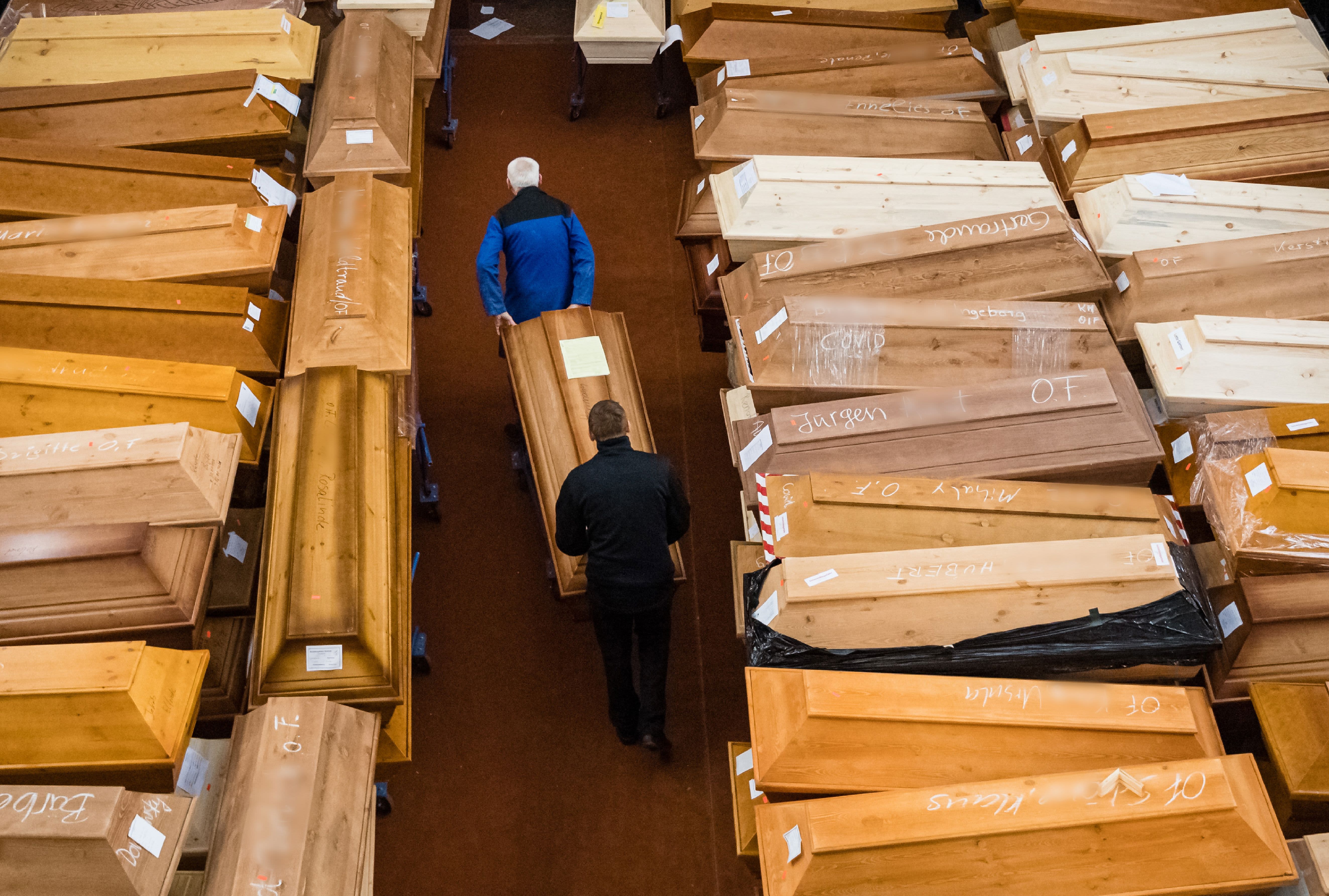Employees store coffins, some marked with “infection risk” as others have “corona” scrawled in chalk, in the mourning hall of the crematorium in Meissen, eastern Germany, on January 13, 2021, amid the new coronavirus COVID-19 pandemic. cremation.
Jens Schlueter | AFP | Getty Images
The World Health Organization said Friday that coronavirus vaccines aren’t “silver bullets” and relying solely on them to fight the pandemic has hurt nations.
Some countries in Europe, Africa and the Americas are seeing spikes in Covid-19 cases “because we are collectively not succeeding at breaking the chains of transmission at the community level or within households,” WHO Director-General Tedros Adhanom Ghebreyesus said during a news conference from the agency’s Geneva headquarters.
With global deaths reaching 2 million and new variants of the virus appearing in multiple countries, world leaders need to do all they can to curb infections “through tried and tested public health measures,” Tedros said. “There is only one way out of this storm and that is to share the tools we have and commit to using them together.”
The coronavirus has infected more than 93.3 million people worldwide and killed at least 2 million since the pandemic began about a year ago, according to data compiled by Johns Hopkins University. The virus continues to accelerate in some regions, with nations reporting that their supply of oxygen for Covid-19 patients is running “dangerously low,” the WHO said.
Some countries, including the U.S., have focused heavily on the use of vaccines to combat their outbreaks. While vaccines are a useful tool, they will not end the pandemic alone, Mike Ryan, executive director of the WHO’s health emergencies program, said at the news conference.
“We warned in 2020 that if we were to rely entirely on vaccines as the only solution, we could lose the very controlled measures that we had at our disposal at the time. And I think to some extent that has come true,” Ryan said, adding the colder seasons and the recent holidays also may have also played a role in the spread of the virus.
“A big portion of the transmission has occurred because we are reducing our physical distancing. … We are not breaking the chains of transmission. The virus is exploiting our lack of tactical commitment,” he added. “We are not doing as well as we could.”
Dr. Bruce Aylward, a senior advisor to the WHO’s director-general, echoed Ryan’s comments, saying, vaccines are not “silver bullets”
“Things can get worse, numbers can go up,” he said. We have vaccines, yes. But we have limited supplies of vaccines that will be rolled out slowly across the world. And vaccines are not perfect. They don’t protect everyone against every situation.”
In the U.S., the pace of vaccinations is going slower than officials had hoped. As of Friday at 6 a.m. ET, more than 31.1 million doses of vaccine had been distributed across the U.S., but just over 12.2 million shots have been administered, according to data compiled by the Centers for Disease Control and Prevention.
Meanwhile, cases are rapidly growing, with the U.S. recording at least 238,800 new Covid-19 cases and at least 3,310 virus-related deaths each day, based on a seven-day average calculated by CNBC using Johns Hopkins data.
On Thursday, President-elect Joe Biden unveiled a sweeping plan to combat the coronavirus pandemic in the United States. While his administration will invest billions in a vaccine campaign, it will also scale up testing, invest in new treatments and work to identify new strains, among other measures.

